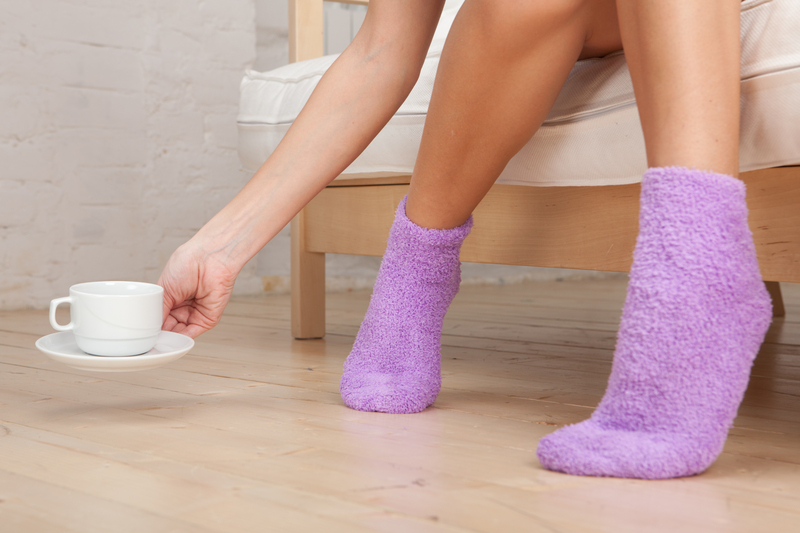Clean Hard Floors Like a Pro
Posted on 11/02/2025
Maintaining pristine hard floors--whether they're hardwood, tile, laminate, or vinyl--requires more than just a quick sweep and mop. To truly clean hard floors like a pro, it's essential to use the right techniques and products tailored to each flooring type. In this guide, we will dive into effective methods to ensure your hard floors shine brilliantly and stand the test of time.
Understanding Your Flooring Type
The first step in cleaning hard floors like a professional is understanding the type of flooring you have. Each material has its unique characteristics and demands a different approach:
- Hardwood: Natural wood floors that are either solid or engineered.
- Tile: Includes ceramic, porcelain, and natural stone tiles.
- Laminate: Compressed wood flooring with a photographic layer.
- Vinyl: Synthetic flooring available in tiles, sheets, or planks.

Daily Maintenance Tips
Consistent daily maintenance helps in preserving the beauty and longevity of hard floors. Here are some daily maintenance tips for different types of floors:
- Sweep or Vacuum: Remove dirt, dust, and debris to prevent scratches. Use a soft-bristle broom or a vacuum designed for hard floors.
- Damp Mop: For hard surfaces like tile or vinyl, use a damp mop without excessive water to clean spills and grime.
- Spot Clean: Immediately address spills or stains using a suitable cleaner for the specific flooring material.
Deep Cleaning Methods
To achieve a professional level of cleanliness, deep cleaning is necessary periodically. Here's how to deep clean various hard floors:
Hardwood Floors
- Use a pH-neutral hardwood cleaner or a mix of water and vinegar (ratio: 1/4 cup vinegar in a gallon of water).
- Mist the cleaner on the floor using a spray bottle and wipe with a microfiber mop.
- Avoid excessive water which can damage the wood.
- Polish the floor occasionally to restore its shine.
Tile Floors
- Use a scrub brush with a mix of water and a few drops of dish soap for grout lines.
- Mop with a tile-safe cleaner or a vinegar-water solution.
- Rinse thoroughly to avoid soap residue.
Laminate Floors
- Never use too much water; laminate can swell with excessive moisture.
- Use a laminate floor cleaner or a gentle detergent diluted in water.
- Dry with a microfiber cloth to prevent streaks and water damage.
Vinyl Floors
- Use a mild detergent mixed with water.
- Avoid abrasive cleaners which can scratch the surface.
- Rinse with clean water to remove any detergent residue and dry thoroughly.
Choosing the Right Tools
The right tools make all the difference in achieving a professional finish. Here's a list of tools to invest in:
- Microfiber Mop: Ideal for all hard floor types as it's gentle and effective in trapping dust and dirt.
- Soft-Bristle Broom: Prevents scratches especially on delicate surfaces like hardwood and laminate.
- Vacuum with Hard Floor Setting: Ensures efficient cleaning without damaging the floor.
- Spray Bottles: For misting cleaning solutions evenly.
- Scrub Brushes: Necessary for grout lines and tough stained areas.
Pros and Cons of Different Hard Floors
Hardwood
Pros:
- Warm, classic appearance.
- Durable and long-lasting if maintained properly.
- Can be refinished multiple times.
Cons:
- Expensive to install.
- Prone to scratches and water damage.
Tile
Pros:
- Extremely durable and water-resistant.
- Available in various designs and textures.
Cons:
- Can be cold and hard underfoot.
- Grout lines can stain over time.
Laminate
Pros:
- Cost-effective compared to hardwood and tile.
- Resistant to scratches and stains.
Cons:
- Can't be refinished.
- Susceptible to water damage if not sealed properly.
Vinyl
Pros:
- Affordable and easy to install.
- Highly water-resistant.
- Soft underfoot and available in many styles.
Cons:
- Can dent and scratch easily.
- Shorter lifespan compared to tile or hardwood.
Expert Tips for Maintaining Hard Floors
- Use Rugs and Mats: Place them at entryways to trap dirt and moisture. Also, use felt pads under furniture to prevent scratches.
- Monitor Humidity Levels: Especially for hardwood floors, maintaining a consistent indoor humidity level (between 30-50%) helps in preventing expansion and contraction.
- Avoid Dragging Furniture: Lift furniture when moving it to avoid scratching or denting the floor.
- Regularly Clean Dirt and Debris: Keeping floors free from debris prevents scratching and extends the life of your finish.

Takeaways
- Identify the type of hard floor you have to choose the right cleaning method.
- Daily maintenance is key to prolong the life and appearance of your floors.
- Utilize the right tools to achieve a professional clean without causing damage.
- Understand the pros and cons of different flooring materials to better care for them.
Conclusion
Cleaning hard floors like a pro requires a blend of regular maintenance, proper techniques, and the right tools. By understanding the specific needs of your flooring type, using appropriate cleaning methods, and following expert tips, you can ensure your floors remain in beautiful condition for years to come.




